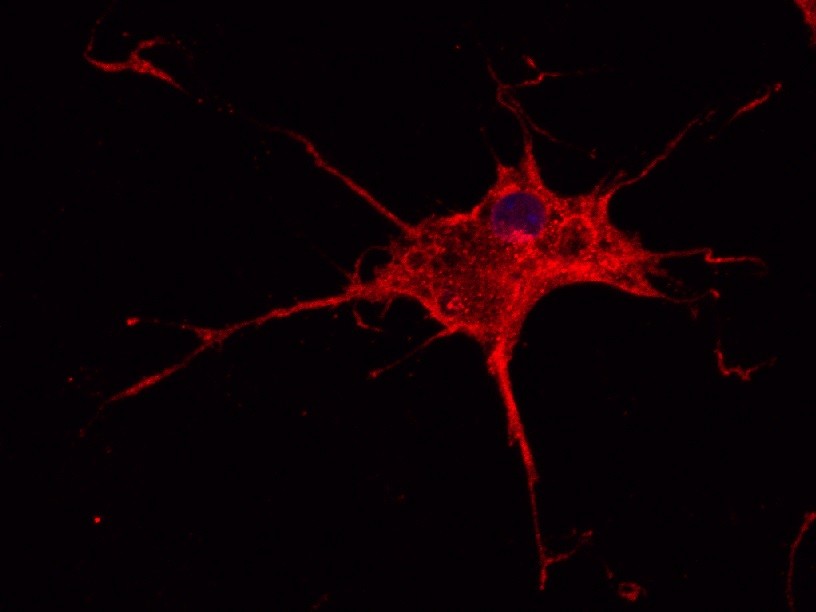New perspectives in Alzheimer’s research Scalable culturing technique for stem cell models developed
LIFE & BRAIN GmbH, an SME based in Bonn, Germany, and partner within the PHAGO consortium, has filed a patent application with the EPO (European Patent Office) on an improved protocol for the large-scale derivation of human microglia from induced pluripotent stem cells (iPSCs). Microglia are thought to play an important role in the development and progression of Alzheimer’s Disease (AD). To elucidate their function, researchers within PHAGO, a pan-European project funded by the Innovative Medicines Initiative (IMI), look at genetically distinct iPSCs generated from the blood of AD patients and microglia derived from them. This cell culture technique is technically challenging, cumbersome and difficult to mend into a cell product. LIFE & BRAIN GmbH, who is co-leading the project’s work package on iPSC models, has now developed a greatly improved method, which involves new types of material enabling scalable bioreactor-based expansion and can yield very high numbers of iPSC-derived microglia. This technique not only facilitates biomedical research, but it might in the long run offer new perspectives for a possible immunotherapeutic approach to treat patients who have a genetical disposition to develop Alzheimer’s disease. Within the PHAGO project, 40 iPSC lines have already been generated from donors that were successfully recruited by the team of Dr. Angela Hodges at King’s College London, which carry several different genetic mutations in the TREM2 or CD33 gene. The "European Bank for Induced pluripotent Stem Cells" (EBiSC, another European initiative under IMI) and PHAGO are working together to make these cell lines accessible to researchers via the EBiSC catalogue at www.cells.ebisc.org. “Our participation in PHAGO and the newly developed technology will further promote the leading position of LIFE & BRAIN in the rapidly evolving market of stem cell-based biomedical applications,” states LIFE & BRAIN’s CEO Oliver Brüstle. ________________________________________________________________________________________ About PHAGO Alzheimer’s disease (AD) is an age-related chronic neurodegenerative disease with progressive loss of nerve cells and their connectivity in the brain. Today, over 46 million people live with dementia worldwide and this number is estimated to increase to 131.5 million by 2050. Affected patients suffer from memory loss and progressive dementia. Although current treatments can slightly delay some cognitive symptoms, there is currently no cure. The ambition of PHAGO is to improve understanding of the biology of the two innate immune receptor genes TREM2 and CD33/SIGLEC3 and their biological networks and pathways, and develop therapies aimed at modulating the immune dysfunction in Alzheimer’s disease. To achieve this, PHAGO brings together experts from industry and academia in a powerful collaboration. About IMI The Innovative Medicines Initiative (IMI) is Europe’s largest public-private initiative that aims to speed up the development of better and safer medicines for patients. IMI facilitates collaboration for research projects by bringing together key players and experts in health research from academia and industry. IMI is a joint undertaking between the European Union and the European Federation of Pharmaceutical Industries and Associations (EFPIA). Acknowledgement of support PHAGO has received funding from the Innovative Medicines Initiative 2 Joint Undertaking under Grant Agreement No 115976. This Joint Undertaking receives support from the European Union’s Horizon 2020 research and innovation programme and EFPIA. Press contact PHAGO project office Claudia Pfander phago-arttic(at)eurtd.com Visit us at www.phago.eu www.lifeandbrain.com



